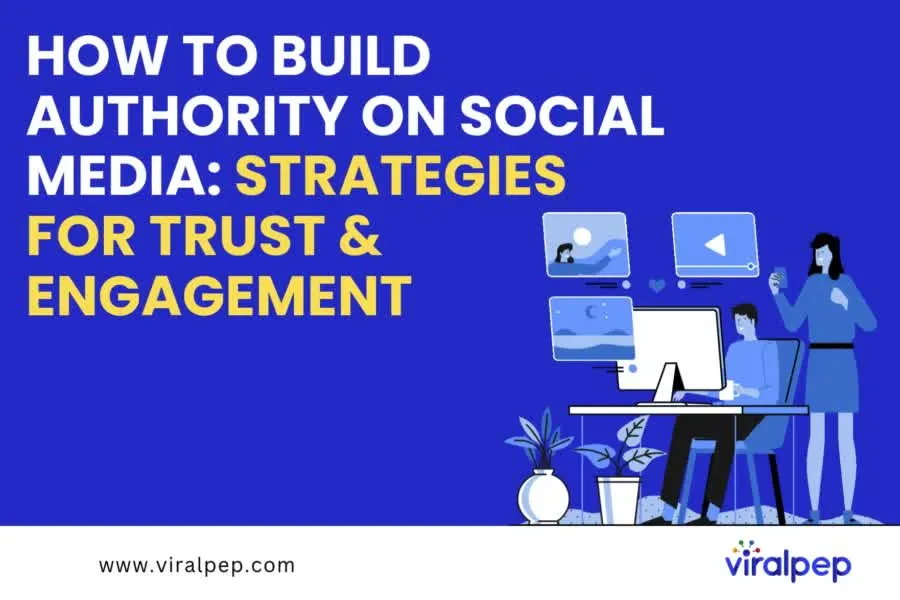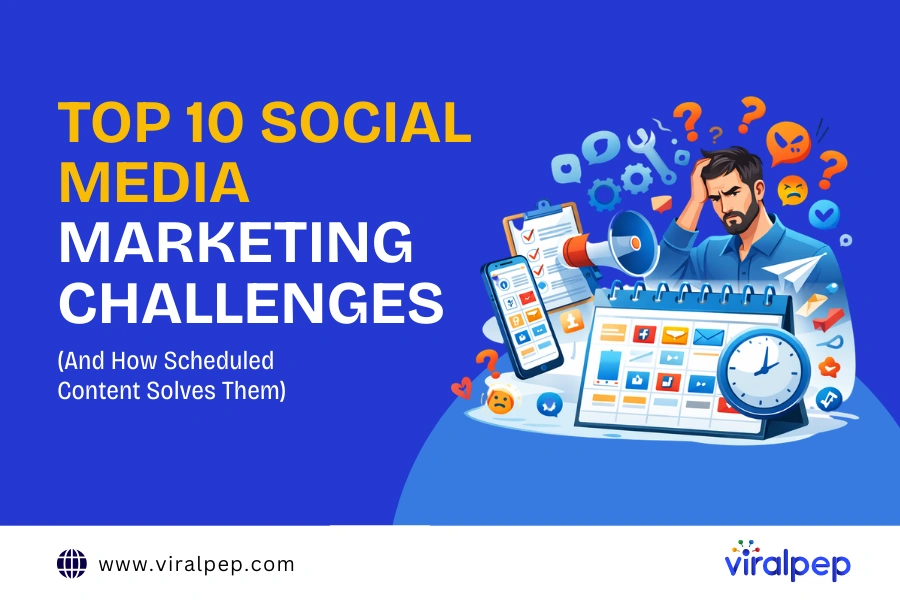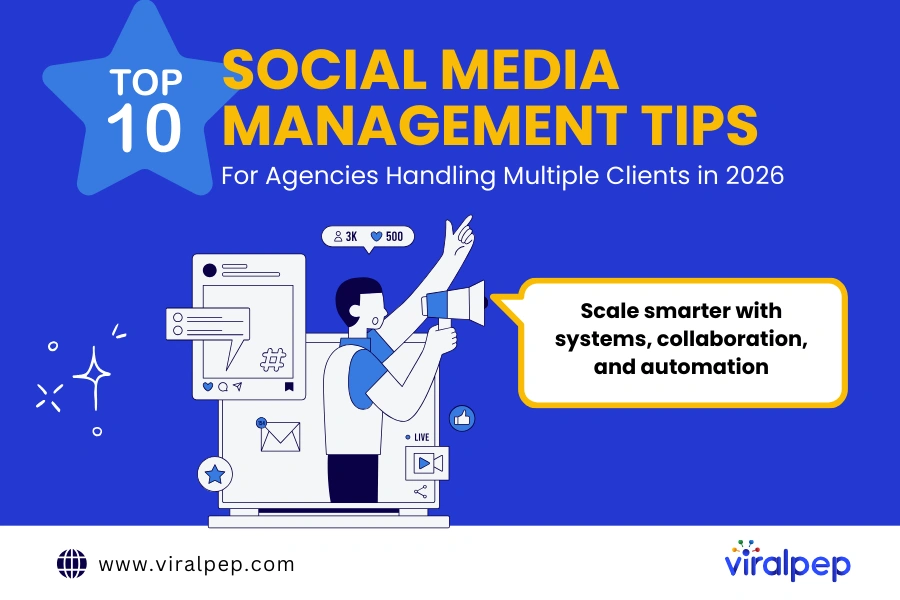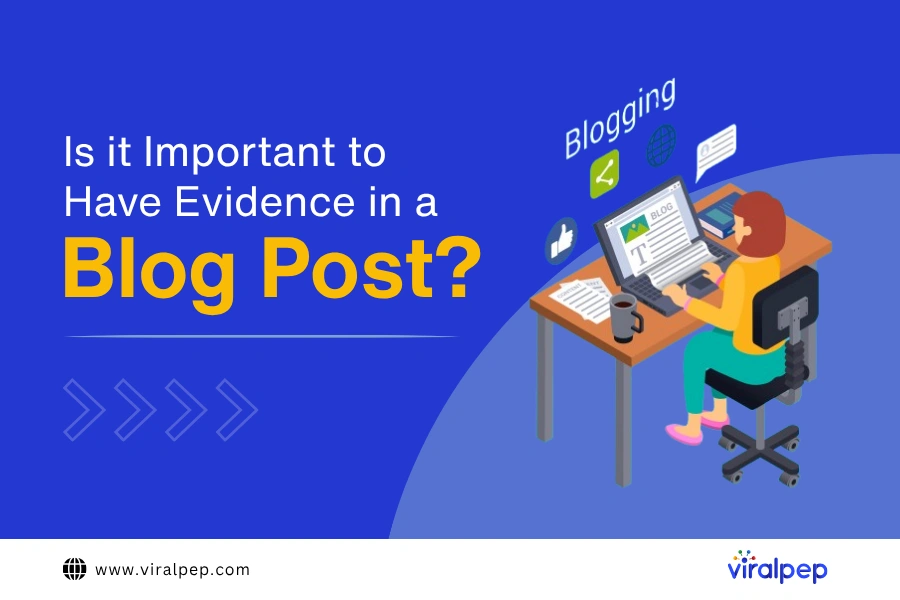The number of active users on social media platforms is increasing constantly. It is one of the reasons why many businesses leverage them to connect with existing and potential customers.
According to a Forbes post, social media is a powerful tool in modern marketing. It can help cultivate a positive brand reputation that goes a long way. For instance, promptly monitoring and responding to customer feedback can demonstrate your dedication to their satisfaction.
Building authority on social media doesn’t depend on having the loudest voice. It depends on consistency, credibility, and creating a space where audiences feel informed and heard. Whether you’re a small or large business owner, your online presence can either support your brand’s reputation or leave it looking unsure and inconsistent.
Authority isn’t something you claim. It’s something your audience grants you over time based on how helpful, relevant, and reliable your posts are. When people trust that your brand delivers value, they’re more likely to return, refer others, and even defend your credibility when challenged.
So, how does a brand earn that level of trust in a space as fast-moving as social media?
Consistency Without Repetition
According to Supply House Times, consistently posting on social media is crucial because it enhances engagement and boosts brand recognition. It helps boost your brand’s visibility and build trust and loyalty among followers.
Even a Shopify article recommends posting three to five times a week on platforms like Instagram. This is an ideal number to start your social media strategy. You can then adjust the frequency according to your audience and engagement levels. Striving for three to five posts initially will offer you benefits such as:
- Showing up on the Explore page
- Appearing in top search results
- Improves your visibility across different content types
- Let you test what works with your audience
However, this does not mean you have to post similar content every day. While publishing regularly shows reliability, repeating the same types of posts week after week can lead to audience fatigue.
To establish long-term authority, content should be steady yet flexible. It should be capable of responding to seasonal shifts, current events, or changes in audience behavior.
A small business in the health and wellness space, for instance, might post daily tips about nutrition and exercise. However, to hold the audience’s attention, they might also explore adjacent themes, such as work-life balance, digital well-being, or sleep habits.
This variation allows them to stay relevant and helpful without feeling like a content loop. In contrast, when a brand stops posting for weeks and then suddenly returns with a string of self-promotional updates, it creates a disconnect.
How do you maintain a consistent schedule without a dedicated team?
Start by batching content creation during slower work periods and use free scheduling tools like Buffer or Meta Business Suite. Repurpose high-performing posts by updating the visuals or captions to keep your feed active without reinventing the wheel every week.
Focus on Topics That Matter Beyond Sales
Social selling is essential for improving your sales process, whether you are selling products or services. According to Business.com, social media can provide visibility and increase web traffic. With this, you can establish a higher-caliber network that not only increases sales but also provides you with constant feedback.
While important, social selling is not the only thing you should focus on. Building authority requires talking about more than just what you offer. While promotional posts have their place, brands earn respect by addressing genuine concerns and speaking to the broader context of their industries.
For example, law firms can expand their following by discussing recent lawsuits and providing guidance on how people can access legal support. Consider the example of the harm of playing video games for extended hours daily.
According to TorHoerman Law, many game developers employ psychological tactics, such as loot boxes and reward systems, to keep gamers engaged. This can keep the players hooked for more extended periods, leading to video game addiction. Many parents have even filed lawsuits against game developers for using such tactics.
It is evident that potential plaintiffs will want legal support to file a video game lawsuit. Lawyers can help collect evidence, calculate damages, and negotiate with insurance companies. Additionally, they can also represent their clients in court if necessary.
This means that discussing this lawsuit on social media can help law firms get new clients. However, instead of focusing solely on the lawsuit and selling their services, law firms can talk about how video games can impact people. For example, they can talk about how excessive gaming can impact mental health, how parents can spot the signs, and more. This can help build a genuine following and loyalty.
Respond, Don’t React
Authoritative brands also understand the difference between reacting impulsively and responding with purpose. Social media platforms are filled with heated debates, misunderstandings, and swift take-downs.
While staying silent can sometimes feel like the safest move, well-timed and thoughtful replies often earn more respect than rushed defenses. When someone questions your brand or leaves negative feedback, the way you handle it can shape how your entire audience sees you.
Ignoring a valid concern can make you seem dismissive. Overexplaining can come across as defensive. But a calm, direct response that acknowledges the issue and offers a way forward can strengthen your reputation.
Responding publicly also helps others who might be watching quietly. Most followers don’t engage directly with content, but they do notice how you treat those who do. When you lead with clarity, empathy, and a steady tone, your audience is more likely to trust your brand.
Here are some tips listed in a Forbes article to help respond to negative feedback on social media:
- Use an automated feedback tracking tool to stay updated
- Acknowledge, appreciate, and assess
- Treat feedback like a gift
- Try to respond as quickly as possible
- Move the feedback offline to prevent it from getting traction
- Encourage engagement while filtering out trolls
Should I reply to every negative comment on my social media posts?
No, not every negative comment needs a response. Prioritize comments that raise valid questions or reflect misunderstandings. Avoid replying to aggressive or bad-faith remarks. Use your brand’s tone guide to determine when to respond and how to maintain a respectful and clear messaging approach.
Share Results, Not Just Opinions
As noted in a Wiley Online Library study, transparency is crucial amid the numerous product scandals, corporate malpractice, and proliferation of information. These things have made consumers more skeptical about the brands they purchase from. Social media offers a perfect way for brands to establish this transparency.
You can share the results of what you have achieved and the process you followed to achieve them. This doesn’t always mean showcasing dramatic success stories.
It can be as simple as explaining how a particular strategy helped a client improve audience engagement. Transparency builds trust, especially when it’s backed by real examples instead of broad advice.
Too often, brands stick to surface-level commentary or general tips. While that content can be helpful, it doesn’t carry the same weight as sharing your process and the results that came from it.
There’s also an opportunity to highlight client feedback or user behavior changes tied directly to your content or services. Did a series of educational posts increase appointment bookings? Did a shift in content style improve the average watch time on video posts? These aren’t just metrics; they’re proof that your approach is working. Over time, this creates a track record your audience can follow and rely on.
What if I don’t have measurable results to share yet?
If your brand is still gaining traction, focus on documenting your process. Share behind-the-scenes decisions, explain your thinking, or reflect on what you’re experimenting with. Your honesty can build authority by demonstrating that you’re actively learning and applying insights in real time.
Establishing authority online takes time, but steady and consistent efforts on social media can help legal consultants build trust and attract the right audience. Sharing valuable insights, engaging with followers, and staying active on the right platforms all contribute to a stronger online presence. With the right approach, legal professionals can establish themselves as trusted sources of reliable information in their field.











